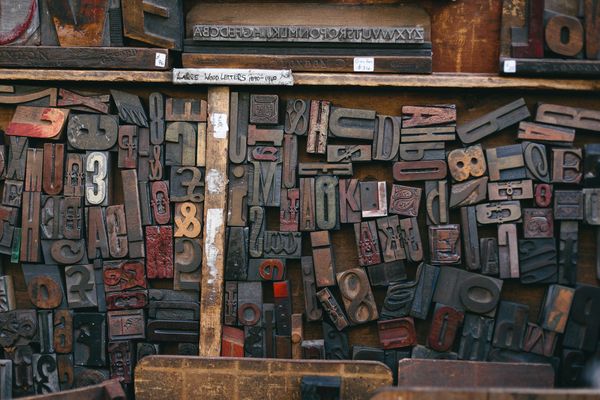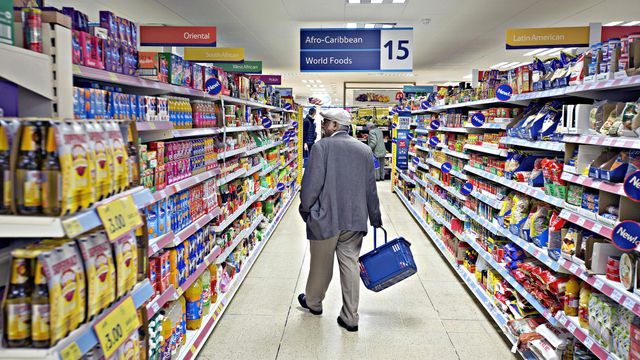1.2.4
Adjectives
Lexis - Adjectives
Lexis - Adjectives
Adjectives are words which describe nouns. These adjectives come in different forms.


Base adjectives
Base adjectives
- Base adjectives are just plain adjectives without anything suffixed (added onto the end) onto the word.
- For example, big, pretty and high.


Base adjectives - examples
Base adjectives - examples
- James is handsome.
- Handsome is the base adjective.
- Sarah has a pretty voice.
- Pretty is the base adjective.
- It is such a sunny day.
- Sunny is the base adjective.


Comparative adjectives
Comparative adjectives
- Base adjectives become comparative when the ‘-er’ suffix is added onto the end of the base adjective.
- For example, bigger, prettier and higher.


Comparative adjectives - examples
Comparative adjectives - examples
- Sally is kinder than Millie.
- Kinder is the comparative adjective here.
- Casper is older than Martin.
- Older is the comparative adjective here.
- The supermarket is nearer to my house than yours.


Superlative adjectives
Superlative adjectives
- Base adjectives become superlative when the ‘-est’ suffix is added onto the end.
- For example, biggest, prettiest and highest.


Superlative adjectives examples
Superlative adjectives examples
- He is the greatest dancer.
- Greatest is the superlative adjective.
- Edina is the wisest woman I know.
- Wisest is the superlative adjective.
- That library is the oldest library in the world.
- Oldest is the superlative adjective.
1Language Levels
1.1Assessment Objectives
1.2Lexis
1.2.1Introduction
1.2.2Common, Proper, Abstract & Concrete Nouns
1.2.3Collective Nouns
1.2.4Adjectives
1.2.5Main, Auxiliary & Copular Verbs
1.2.6Dynamic & Stative Verbs
1.2.7Transitive, Intransitive, Active & Passive Verbs
1.2.8Mood of Verbs
1.2.9Adverbs
1.2.10Personal, Possessive & Reflexive Pronouns
1.2.11Relative & Demonstrative Pronouns
1.2.12Determiners
1.2.13Conjunctions
1.2.14Synonyms, Antonyms & Phonological Features
1.2.15End of Topic Test - Lexis
1.3Grammar
1.4Semantics & Pragmatics
1.5Discourse Structure, Graphology & Orthography
2Language, The Individual & Society
2.1Children’s Language Development
2.2Children's Language Development - Theories
2.3Literacy Development: Reading
3Language Diversity & Change
3.1The Importance of Gendered Language
3.2Social Groups
3.3Occupational Groups
3.4Accents & Dialects
3.5Language Change
Jump to other topics
1Language Levels
1.1Assessment Objectives
1.2Lexis
1.2.1Introduction
1.2.2Common, Proper, Abstract & Concrete Nouns
1.2.3Collective Nouns
1.2.4Adjectives
1.2.5Main, Auxiliary & Copular Verbs
1.2.6Dynamic & Stative Verbs
1.2.7Transitive, Intransitive, Active & Passive Verbs
1.2.8Mood of Verbs
1.2.9Adverbs
1.2.10Personal, Possessive & Reflexive Pronouns
1.2.11Relative & Demonstrative Pronouns
1.2.12Determiners
1.2.13Conjunctions
1.2.14Synonyms, Antonyms & Phonological Features
1.2.15End of Topic Test - Lexis
1.3Grammar
1.4Semantics & Pragmatics
1.5Discourse Structure, Graphology & Orthography
2Language, The Individual & Society
2.1Children’s Language Development
2.2Children's Language Development - Theories
2.3Literacy Development: Reading
3Language Diversity & Change
3.1The Importance of Gendered Language
3.2Social Groups
3.3Occupational Groups
3.4Accents & Dialects
3.5Language Change
Unlock your full potential with Seneca Premium
Unlimited access to 10,000+ open-ended exam questions
Mini-mock exams based on your study history
Unlock 800+ premium courses & e-books